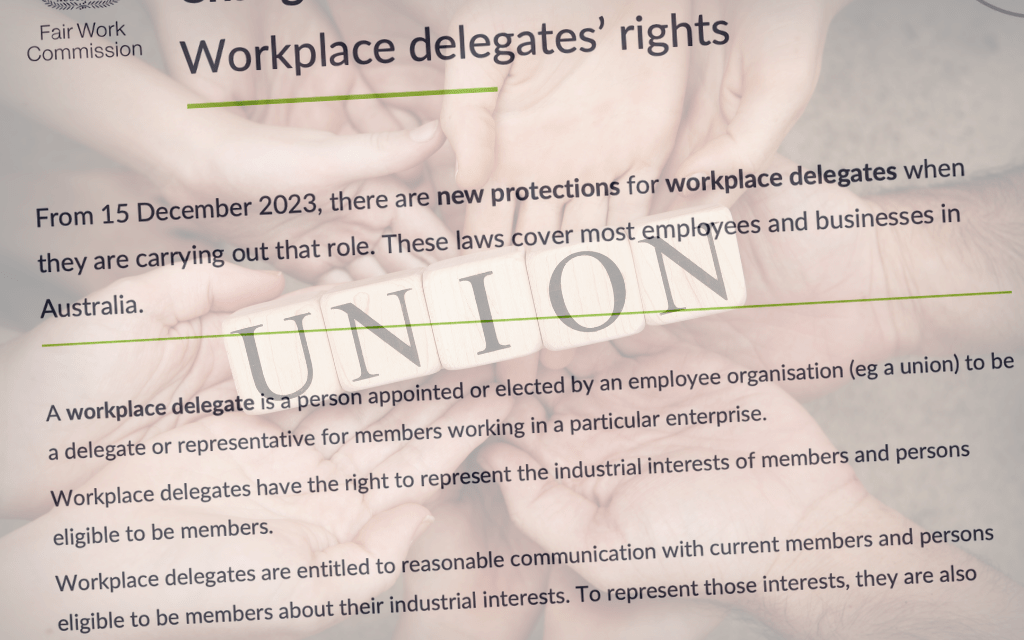Last year the Federal Labor Government passed landmark changes to industrial relations law. The Fair Work Legislation (Closing Loopholes) Act has ensured that workers will have a fairer industrial relations system. This is particularly important in private sector workplaces where Union membership and associated workplace protections are generally lower.
One of the legislated changes was the introduction of a delegates’ rights provision. The role of a workplace delegate is essential in ensuring workers’ rights are upheld. Delegates are often the first point of contact for workplace issues and are key in informing other workers of their rights.
Before the changes, delegates’ rights had to be negotiated into individual enterprise agreements meaning that protections varied between workplaces. This is the first time the first time that the role of a union delegate has been explicitly protected in legislation.
The changes provided for a general protection of delegates’ rights at law meaning that the right of delegates to communicate with workers and engage in the workplace is now guaranteed. Significantly, the change also required that a delegates’ rights clause be included in all modern awards and new enterprise agreements. On 28 June the Fair Work Commission handed down its decision on the clause to be inserted into all awards. The clause also provides a model clause for all new EAs.
Some of the highlights of the decision include an obligation on employers to consult delegates on major workplace changes and the right for delegates to represent other employees in disputes and disciplinary proceedings. Delegates will now also be entitled to communicate to workers during working hours and breaks and they will be entitled to the reasonable use of workplace facilities such as meeting rooms, emails and notice boards. Paid training time is now also generally protected for delegates.
The decision by the Fair Work Commission is a welcome step in ensuring delegates understand what they are entitled to in the workplace.


